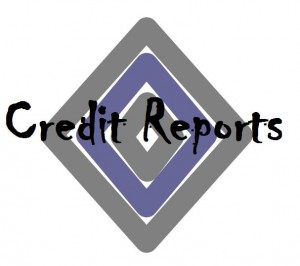 Last time, in Credit Reports 101, we talked about what credit reports are, what you’ll find in them and how to get them for free. By now, I’m hoping that you got your free credit report and checked it for accuracy. Did you find any errors?
Last time, in Credit Reports 101, we talked about what credit reports are, what you’ll find in them and how to get them for free. By now, I’m hoping that you got your free credit report and checked it for accuracy. Did you find any errors?
What if you find mistakes on your Credit Report?
Well, you’ll dispute them of course. The quickest and easiest way to dispute errors on your credit report is online. Each of the links below will take you to the information page on how to dispute mistakes found on their credit reports.
After looking over your credit report, you should have a better idea of what’s going on credit-wise. No matter how much we might not want to see or deal with this stuff, it’s still good to do.
Reviewing our credit reports can make us more aware of our financial standing, and is imperative if you’re looking to improve your credit.
Determining Your Credit Score:
The information found in credit reports is what they use to determine your credit score. Here’s how each is weighted on your credit score:
35% Payment History- Were your payments made on time? Were they late, really late, non-existent?
30% Credit Utilization- How much of your available credit you use. Example: Say you have 3 credit cards each with a $500 limit and your total balances equal $750. That would mean that you are using 50% ($750) of your available credit ($1,500). That example would negatively affect your credit. The lower the percentage you use of your available credit, the better your credit score will be.
15% Length of Credit History- How long you’ve been using credit. The longer the better. They add up all your accounts and loans and then average them out. This is one of the reasons most experts advise us to not close old accounts.
10% Types of Credit Used- The variety of credit you have experience with, the more the better. Credit cards, Retail cards, Loans, Mortgages.
10% New Credit- This includes newly acquired credit and inquiries into your credit from potential lenders.
We’ll talk more about credit scores another time. Did you know that your car insurance premiums can be higher/lower depending on your credit. Interesting how they find all sorts of ways to punish those will less than lovely credit.
Some employers can also use your credit history as factor for determining whether to give you a job. It doesn’t seem really fair, but some do.
Did everybody get their free credit reports?
Did you find any errors?
Did you freak out or were your pleasantly surprised?

Regarding credit utilization… While you say the scenario used above would negatively impact your credit score, the actual recommended ratio will vary based on the source. Some people recommend staying under 75%, others 50%, others as low as 10%. Just try out a google search and watch the extremely wide range of suggestions.
@Chris- That’s so weird; I’d always found that you should keep it below 30% and preferably under 10% in my research. Thank you very much for bringing this to my attention, I’m gonna have to do more research. Is there anywhere/anything specific you know of that mentions that?